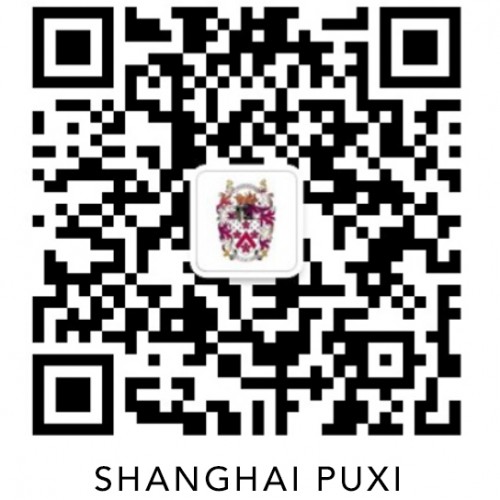How Can We Measure the Value of an Academic Programme?
“What did you learn at school today?.” The need to quantify the learning experience usually means that we’re stuck trying to count it, looking at the items that are presented in class as separate things, and viewing a good or great learning experience as one in which we deal with many of these things.
If we’re trying to understand educational value, however, a better question might be “Why are you learning in school?”, or “How will the classroom experience translate into your life?”. These are questions which multiple studies have shown provide important answers for all stakeholders in a school. Research proves that nobody wants school to be an “easy ride”: not parents, not teachers, and very interestingly, definitely not students either, who can be among the most discerning when it comes to weighing up the value of an academic programme (Kaplan). In the Sixth Form at Dulwich College Shanghai Puxi, we are delivering an academically rigorous programme that answers these questions, addressing the needs of our students not just for today, but for the future.
Academic Value Changes with the Landscape
————
When it comes to measuring academic value, society places some of the strongest weight on the concept of literacy. One of the most profound realisations that I have come to as an educator is the fact that literacy is not a fixed point, and that the definition of literacy and thus of learning value has changed organically with the landscape that we as humans have lived in and interacted with (Zhao).

Figure 1: Hunter-Gatherers interacting with their environment
View the world through the lens of those in this photograph. If this is your reality, literacy will be measured by how well you can read the landscape. If you are a hunter-gatherer, anything you learn must be focused on the realities of this life: the ability to read the land for clues on where best to hunt for food; where the best place will be to gather vegetables and fruit; the ability to know when your tribe should prepare to move on, and insights into where you should move next.

Figure 2: Farming brought a new landscape with new literacy requirements
The introduction of farming as a way of life meant that we were less dependent on hunting and on the ability to locate and capitalise on the fleeting resources of a particular area. In an agricultural society, high-value literacy is the ability to read the weather for planting and reaping; understanding which crops will perform best in which conditions and knowing how to read the land to maximise its potential. This information would hold much greater value than what we consider traditional academic knowledge (Zhao).

Figure 3: The factory changed the way we worked and lived, changing our educational needs yet again
Factories brought about a radical change in the knowledge required for success. The industrial revolution, when the factory became society’s dominant workplace, created a need for workers who can read technical text and do sophisticated and complex calculations (Whitaker). The factory floor though, had little use for creativity and collaboration, for independent thought and innovative thinking.
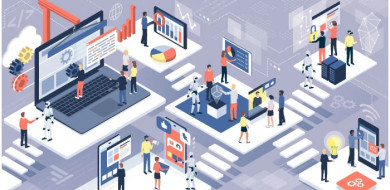
Figure 4: Deloitte's conception of the future of work
What will the work environment look like for our children? This is difficult to answer. Our one certainty when we look to the future of work though, is that we have entered “the age of uncertainty” (Galbraith). The world has become a place that constantly throws new information and new challenges at us, and a world in which we need to be creative and flexible in our responses to these challenges. Perhaps most importantly, the world has become a place where we need to blend skills and techniques from disparate fields and knowledge areas to develop new ways of working (Bauer and Gruber). Changes in the way we work need to be reflected in newer literacies that we embed into our classroom praxis: there is a wealth of research demonstrating that we have entered a world where “discipline-specific literacies” have become increasingly important (Barton, Lemieux and Chabanne). Preparing students for outdated problems will not set them up for their place in the future.
Today’s Classrooms Should Be Focused on Tomorrow, Not Yesterday
————
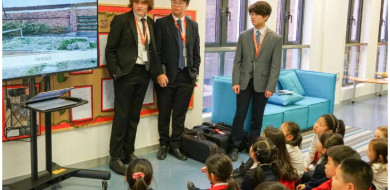
At Dulwich College Shanghai Puxi, our aim is to develop students who will be able to collaborate with - or compete with - anyone, from anywhere, in any way that presents itself. We pride ourselves on developing learners who are able to think creatively and critically, developing new ways of solving problems whether they be new issues or old ones that need to be reimagined.
We feel that real learning is the result of work that challenges students' thinking in new and interesting ways. It occurs when students are “encouraged toward a sophisticated understanding of fundamental ideas and are driven by curiosity to discover what they don't know” (Sztabnik), and is something which is achieved by connecting the classroom experience to the outside world and giving learners the opportunity to co-develop their learning experience with the teacher.
Effective Learning Needs Depth, Breadth and Individual Pathways
————
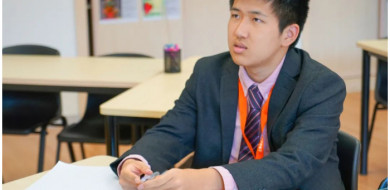
In our Sixth Form at Dulwich College Shanghai Puxi, we offer a deep and broad learning experience based on the International Baccalaureate Diploma Programme, which is then tailored to meet the needs of every one of our students. The IB Diploma Programme (IBDP) curriculum has always been geared towards creating space and opportunity for learners to become future-ready and to develop their future skills, with a strong focus on student voice and student choice. We have the capacity, and commitment, to create individual pathways for each and every student, ensuring that their learning experience is customised for them, helping them become the very best version of themselves.
Developing a Future-Ready Skillset
————
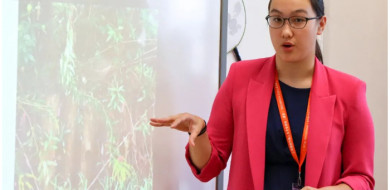
The IBDP is a highly academic, broad and deep curriculum that challenges students beyond a traditional standard curriculum to become critical, creative and flexible independent thinkers. All our IBDP subjects are concept-driven and inquiry-focused, with a strong lean towards student-directed learning and a capstone project in each subject which makes students ready for university and ready for the working world. It is in the cross-subject connection that the programme develops into a curriculum of real breadth and depth. For our Sixth Form, those interdisciplinary connections will happen in the core of the IBDP: the extended essay, the CAS programme, and the purpose-built course of the Theory of Knowledge (TOK).
The TOK course, which all IBDP students must take, is not simply a critical thinking course. It is, however, built on elements of traditional critical thinking methods, and aims to train our learners to apply these skills over the course of their lives as they learn to evaluate veracity, source and the usefulness of knowledge from wherever it originates – with a very strong focus on the interdisciplinary application of knowledge and skills.
Service, Sustainability & Global Citizenship
————
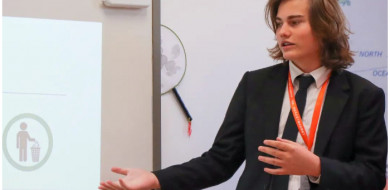
At Dulwich College Shanghai Puxi, service, sustainability and global citizenship are more than a responsibility. They are at the heart of our College values: Aim High. Work Hard. Be Kind and Respectful. Make a Difference. They are at the centre of the Dulwich vision and mission: to inspire our learners to Live Worldwise, which in the 21st century almost certainly means being engaged with issues surrounding the environment, sustainability, social justice and equity. Any program that aspires to deliver academic value needs to add aspects of social and environmental responsibility, developing ideas of informed choice, inspired action and positive impact for people and the planet.
Our Sixth Form curriculum provides our learners with a service-learning program that allows them to apply their knowledge, skills and motivation to make a positive difference in the world. Students learn social responsibility, leadership and empathy through direct and concrete action that they need to develop by themselves – and in doing so develop an understanding of their role in the world.
Service-learning projects are also a great channel for developing problem solving skills and applying knowledge from a range of subjects. Identifying a clear need and developing a way to meet that need is a fantastic opportunity to bring into sharper focus the concepts learnt in business management and maths, visual arts and chemistry, performing arts and literature. Knowledge from every subject can be utilised and applied through service-learning initiatives.
Mandarin and Chinese Culture
————
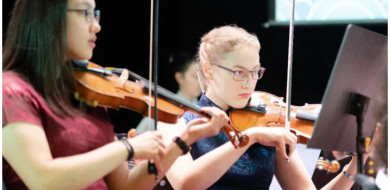
“Learning a new language is like gaining a second soul” according to Juan Ramon Jimenez, and learning a second language to a high level is a requirement of every Sixth Form student at Dulwich College Shanghai Puxi. The ability to Live Worldwise is truly realised when we can interact with more people and understand them better. Learning a language is also learning a culture, and we are very aware that many of our Sixth Form learners will have strong ties to Mandarin Chinese and to Chinese culture. We have developed a learning pathway that provides a rich and rigorous Mandarin Chinese language programme, with proven results within a school culture that respects the local context and helps every child be aware of their heritage. Children who graduate from the College will be able to operate as effective global citizens both around the world and at home in China.

At Dulwich College Shanghai Puxi we have identified a new set of literacies for the 21st century, based on;
- The need for collaboration skills, team-work and group effort in the face of large global threats and large global opportunities
- The need to be creative and active problem-solvers, in order to not just participate in the future, but to shape it
We are committed to enhancing our programme of learning by meeting these literacies with systematic work in the classroom and outside of it, and we’re focused on meeting these needs by using this guiding principle:
“Let us aspire to something greater than making difficult work for our students. Let's take them to that intersection of encouragement and engagement, where they confront ideas and problems that are meaningful. Let's stretch their thinking. Let's unleash their sophistication. And let's foster a love of deep knowledge” (Sztabnik).
References
Barton, Georgina, Amélie Lemieux and Jean-Charles Chabanne. "‘Invisible’ literacies are literacies for the future. What are they? Why is teaching them vital?" 6 August 2018. EduResearch Matters. 14 10 2021. .
Bauer, J and H Gruber. "Workplace changes and workplace learning: advantages of an educational micro perspective." International Journal of Lifelong Education (2007): 657-688.
Benesh, Darek. "Academic Rigor and How I Failed College Chemistry." UNIversitas: Journal of Research, Scholarship, and Creative Activity 1.1 (2005). .
Draeger, John, et al. "The Anatomy of Academic Rigor: The Story of One Institutional Journey." Innovative Higher Education (2013): 267-279. https://link.springer.com/article/10.1007/s10755-012-9246-8#citeas.
Draeger, John, Pixita del Prado Hill and Ronnie Mahler. "Developing a Student Conception of Academic Rigor." Innovative Higher Education (2015): 215-228. https://link.springer.com/article/10.1007/s10755-014-9308-1.
Galbraith, Kenneth. The Age of Uncertainty. New York: Houghton Mifflin, 1977.
Graham, Charles and Christopher Essex. "Defining and Ensuring Academic Rigor in Online and On-Campus Courses: Instructor Perspectives." Annual Proceedings of Selected Research and Development Papers Presented at the National Convention of the Association for Educational Communications and Technology. Atlanta, Georgia: SAGE, 2001. https://files.eric.ed.gov/fulltext/ED470163.pdf.
Kaplan, Sandra N. "Defining Academic Rigor." Gifted Child Today (2017): 218-219. https://www.proquest.com/openview/998d6a5470584250c07bc349182c817f/1?pq-origsite=gscholar&cbl=46372.
Matusevich, Melissa N., Katherine A. O'connor and Mary Valorie P. Hargett. "The Nonnegotiables of Academic Rigor." Gifted Child Today 32.4 (2019): 44-52.
Maye, D. "Hitting the Mark: Strategic Planning for Academic Rigor." Delta Kappa Gamma Bulletin (2013): 29-36. https://www.proquest.com/openview/1fb897418f9a1347d50a54689564bc7e/1?pq-origsite=gscholar&cbl=47978.
Oxford Learner's Dictionary. n.d. 5 11 2021. .
Sztabnik, Brian. A New Definition of Rigor. 7 May 2015. 19 September 2021. .
Whitaker, Manya. "(Re)Defining Academic Rigor: From Theory to Praxis in College Classrooms." Currents in Teaching & Learning 8.1 (2016): 4-17.
Wyse, Sara A. and Paula A. G. Soneral. "“Is This Class Hard?” Defining and Analyzing Academic Rigor from a Learner’s Perspective." Life Sciences Education 17.4 (2018).
Zhao, Yong. "Speak a Different Language: reimagine the Grammar of Schooling." International Studies in Educational Administration 48.1 (2020).





